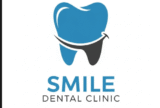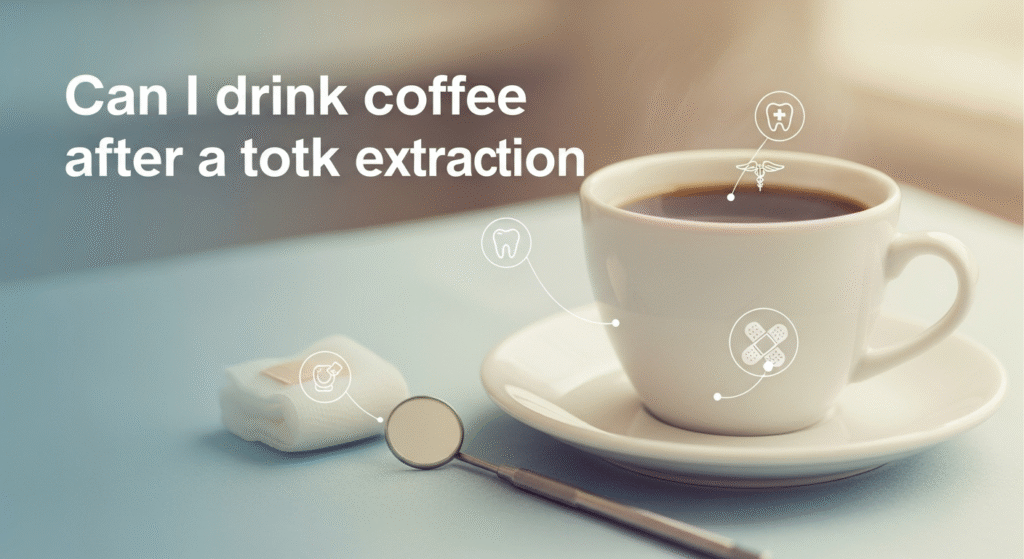Tooth extraction is a common dental procedure, whether it’s due to a damaged or infected tooth, overcrowding, or other dental issues. After the procedure, it’s essential to follow your dentist’s instructions for proper healing and to avoid complications. One common question patients ask is, “Can I drink coffee after a tooth extraction?”
In this article, we will explore the effects of coffee on recovery, when it’s safe to consume it, and how to ensure you heal properly after your extraction.
Why You Should Be Cautious About Drinking Coffee After a Tooth Extraction
- Risk of Dry Socket
One of the most significant concerns after a tooth extraction is the development of a condition called “dry socket.” This occurs when the blood clot that forms in the empty socket becomes dislodged or dissolves, exposing the underlying bone and nerves. Dry socket can cause intense pain and slow down healing. Drinking hot coffee can potentially contribute to dry socket because the heat might disturb the blood clot, increasing the chances of dislodgement. It is also advised to avoid drinking through a straw, as the suction can have a similar effect. - Caffeine’s Effect on Healing
Coffee contains caffeine, a stimulant that can elevate blood pressure. While moderate caffeine consumption isn’t usually a problem, high blood pressure during recovery could increase the risk of swelling or bleeding. It’s important to monitor your caffeine intake and ensure you don’t overdo it during the first few days after surgery. - Sensitivity to Hot Beverages
After a tooth extraction, your mouth may be sensitive, and consuming hot liquids such as coffee might aggravate this sensitivity. You might experience discomfort or even pain while drinking hot coffee, which can interfere with your overall healing process.
When Is It Safe to Drink Coffee After Tooth Extraction?
1. The First 24-48 Hours
During the initial 48 hours after your tooth extraction, it’s best to avoid coffee entirely. The primary concern is allowing the blood clot to form and remain undisturbed. Stick to cold, soft foods and liquids during this time to promote healing and prevent irritation.
2. After the First Few Days
After the first few days, once the initial healing process has started, it may be safe to have coffee, but with some precautions:
- Temperature Matters: Wait until your coffee is cool enough to drink comfortably. Hot beverages can still interfere with the healing process and irritate your extraction site.
- Avoid Sugary or Acidic Coffee: Beverages with added sugar or acidic creamers can irritate your mouth and delay healing. If you choose to drink coffee, consider drinking it black or with minimal additives.
- Moderation is Key: Too much caffeine can lead to dehydration, which can slow down your recovery. Stick to a moderate amount of coffee to avoid these risks.
3. Long-Term Recovery
Once the site has fully healed (usually a few weeks), you can return to your normal coffee-drinking routine. By this point, the risk of complications like dry socket is minimal, and your mouth should feel comfortable again.
Tips for Drinking Coffee Safely After Tooth Extraction
- Let Your Coffee Cool Down
Avoid consuming scalding hot coffee that could irritate the surgical area. Allow it to cool to a comfortable temperature before sipping. - Sip Slowly
Rather than gulping your coffee quickly, take small sips to avoid disturbing the healing area. Avoid using a straw, as it can create suction and potentially dislodge the blood clot. - Keep It Simple
Stick to black coffee or coffee with minimal additives. Sugary, creamy, or acidic coffee drinks can contribute to mouth irritation and increase the risk of complications. - Stay Hydrated
Make sure to drink plenty of water throughout the day. Coffee, particularly with caffeine, can have a diuretic effect, leading to dehydration. Hydration is key to speeding up your recovery.
While you can eventually drink coffee after a tooth extraction, it’s essential to be mindful of the timing and how it could affect your healing. Avoid coffee during the first 24 to 48 hours after surgery, as this period is critical for forming a stable blood clot. After that, if you choose to indulge in coffee, do so cautiously—ensure it’s at a safe temperature, avoid excessive caffeine, and drink it without using a straw.
If you experience any unusual symptoms like persistent pain, swelling, or bleeding, it’s always a good idea to consult your dentist to ensure your recovery is progressing well.
In the end, taking care of your mouth post-extraction will help you heal faster, so you can return to your regular coffee routine sooner rather than later!

